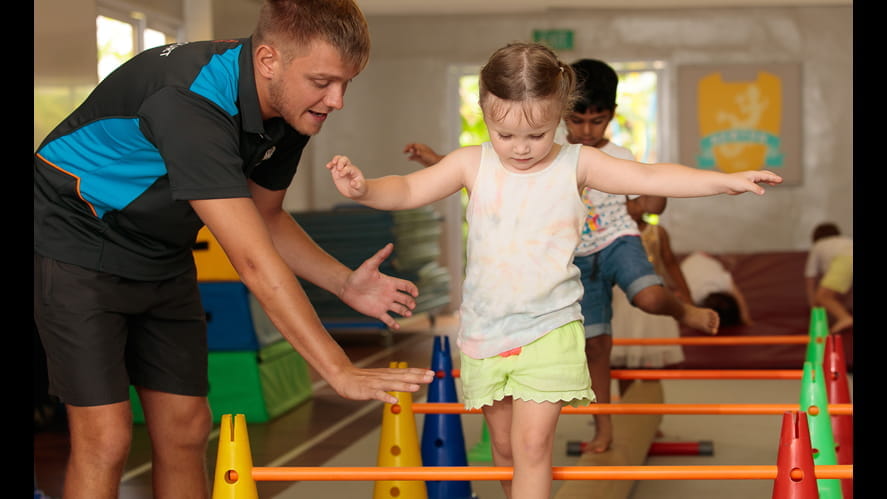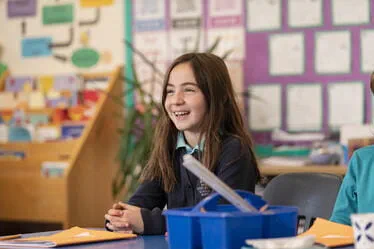We use cookies to improve your online experiences. To learn more and choose your cookies options, please refer to our cookie policy.


The impact of social media
Social media permeates today’s society, with most of us engrossed in the latest happenings via apps such as Facebook, Twitter, WeChat, Snapchat and Instagram, to name but a few. At Nord Anglia Education, we embrace this modern-day phenomenon yet do so with caution and education. We know that our students are technologically literate and can share and receive information immediately, and we believe the benefits of this can far outweigh the negatives.
These benefits include opportunities for socialisation and communication, such as an enhanced sense of community and social responsibility. Online access also grants us access to unlimited information at our fingertips, which in turn provides students with increased global and cultural awareness and enhanced learning opportunities beyond the classroom. A great example of this is Nord Anglia’s online Global Campus, which connects 50,000 plus Nord Anglia students in 26 countries through online activities.
Whilst the internet and social media can be beneficial, their usage does come with notes of caution. For our students, internet or social media use can be a source of problems, such as addiction leading to depression. Students are susceptible to using social media to compare themselves to others, whether positive or negative, and this can sometimes lead to self-harm, substance misuse and generally negative behaviour. The reality is that some students also experience elements of cyberbullying.
The role of our schools – providing advice, guidance and education to students
Our schools undertake efforts to ensure student safety first and foremost. We want all students to be made aware of their responsibilities regarding the internet. This means that our schools work to ensure internet safety is a visible topic at school and that we treat cases of misuse swiftly and according to specific school guidelines.
When it comes to bullying or cyberbullying, a school’s role is often to help resolve issues that begin outside of the school itself, especially since they are likely to impact student relationships. For example, our teachers are trained to note behaviours that might be described as bullying and to take steps to immediately address them.
With an increase in childhood addiction to social media and potential for significant effects on wellbeing and mental health, it’s important for our staff to be able to understand and recognise any worrying signs, including:
Many of our schools also produce materials and run workshops for parents to help them spot these signs and to offer support and guidance on how to deal with the issue sensitively but effectively.
The role of the student
Schools have begun to educate students about the concept of a ‘digital footprint’. A digital footprint is a trail of data you create while using the internet. It includes the websites you visit, emails you send, information you submit to online services and, in fact, almost anything you do online. Students are reminded that, just as a tattoo is permanent, so too is much of the information we post online: the photos we share, the comments we write, the videos we 'like'. Even if we delete them, they may still be out there — saved and shared by others.
Students should make themselves aware of how to stay safe online and should always use the internet and social media responsibly. Students should talk to teachers or their parents if they feel in any way concerned about online issues or if they have concerns about friends or other students and their online conduct.
The role of the parent
The role of the parent is paramount in managing and supporting a child to understand and use social media and the internet appropriately. It’s important for parents to talk with their child about the nature of the internet, about responsible internet use and about staying safe online.
Whilst children often regard their peers as important and influential, parents should remain the most influential people in a young person’s life. Children require clear guidance within the home, such as boundaries that are set and adhered to. Highly supportive and open relationships with parents from an early age regarding this issue will have incomparable benefits.
There are many simple methods and changes that can help parents in supporting a child’s online life, such as being educated about devices and the specific media a child is using, monitoring their social media accounts and device usage appropriately, and establishing rules and consequences around the use and misuse of technology. Schools can help with this and parents should never hesitate to contact their child’s teachers if they would like advice or support, or if they have any concerns whatsoever. This contact is often reassuring but can also help schools recognise if there is a serious issue.
Safeguarding, a joint effort
Together, we can ensure all Nord Anglia Education students have positive habits for using social media and the internet that will contribute to success in their academic and personal lives, rather than causing harm.
If you want to learn more about child safeguarding at school and at home, check out these interesting articles:
By Matthew Shephard, Headmaster, The British School of Nanjing